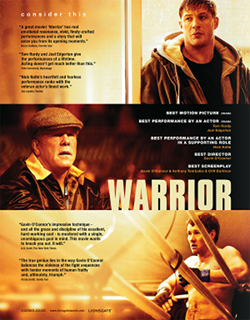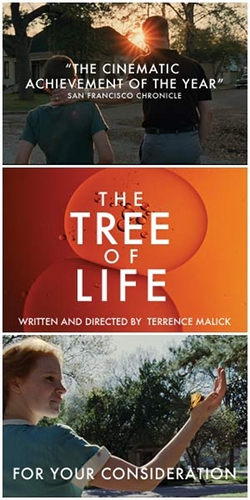Review: Of Gods and Men (2010)
Silence. A vast mountainous landscape, bathed in the light of the setting sun. A bible passage, written in simple text across the screen: “I have said, ye are gods; and all of you are children of the most High. But ye shall die like men, and fall like one of the princes”. So begins Of Gods and Men, a quietly ruminative and deeply moving take on religion, faith, loyalty, and humanity.
Engrained within the local Algerian Muslim community, eight Christian monks live a peaceful life of routine prayer and providing medical and spiritual aid to all who seek it. When their lives become threatened by the increasingly violent activities of fundamentalists in the region, they are forced to decide between their safety and their calling.
Rooted in real events that themselves remain unclear to this day, Of Gods and Men is far less concerned with presenting an objective portrayal of the truth than giving us an honest portrait of faith and devotion. Faith, incidentally, is something one should bring to a viewing of the film, its unashamedly near-static pacing and minimalist plot structure sure to infuriate the less patient among us. Like the Trappist monks on whom the film focuses, Of Gods and Men seems content to stay silent more often than not, abandoning score and soundtrack in favour of the more contemplative sound of silence.
The elected head of the order is the appropriately named Christian, a reverential elder deeply respectful of all those around him. When not reading the Bible with his brothers, he studies the Koran in solitude, eager to increase his understanding of the people who see the monastery as an integral part of their village, and the monks an extension of their communal family. Calculating and rational, albeit with a cold stoicism, Christian seems closest to the younger Christophe, who is most troubled by the escalating violence which surrounds him. More than the others, Christophe questions his calling in the face of mortal fears, his faith shaken by the horror stories which make it to the monastery from the outside world. The relationship between Christian and Christophe is among the film’s most captivating, their dialogues on the subject of family, faith, and friendship often as involving as the magnificently shot landscapes through which they walk as they discuss. This is, at its simplest, a film about relationships: between the individual monks; between their order and the community; between faith and fear; and, most importantly of all, between the individual and the spiritual.
Though Christian and Christophe may be given the majority of the dramatic characterization, the other characters are no less captivating than these two. Luc, the doctor of the clinic they provide to the community, is among the most amiable of the monks. Sagacious, peaceful, and assured, he offers guidance to a young woman on love in one of the film’s most touching scenes, giving us a glimpse into the life these people led before they were called to this place. Each of the eight is played superbly, defined precisely in their performances to very real and very relatable characters we become enthralled with, and are reluctant to part company with. Lambert Wilson and Oliver Rabourdin are unforgettable in their respective roles as Christian and Christophe, each mastering the art of facial performance, their troubled brows telling us all we need to know. More outwardly likeable is Michael Lonsdale, whose Luc is the indisputable warm heart of the monastery. Phillipe Laudenbach’s Célestin, lastly, is the quintessential loveable old man, his charming comic relief never undermining the genuine emotional attachment we feel toward his character.
Of Gods and Men says more through its images than through its sounds, harkening back to the days of silent film. Its meaning seems ever clearer in the sunlit slopes which fill the panoramic frame than the few words exchanged between the characters. Director Xavier Beauvois revels in the natural beauty of the landscape, guiding his camera slowly across fields and lakesides to capture the tranquillity and deep sensual meaningfulness of this place, complimenting and accentuating the themes of his story. The interplay between darkness and light, simple though it may be, is utilized to extraordinary effect here, Beauvois and his cinematographer Caroline Champetier basking the monks in the darkness of what seems at times to be their monastic prison. The Gregorian chant-laden celebrations of mass they engage in are juxtaposed with these scenes, the engulfing light of the single stained glass window of the chapel bathing them in an ethereal glow that stands out from the moral darkness in which they spend much of the film. Beauvois says far more about his characters in scenes such as these than in those wherein they speak, clearly demonstrating his competence in visual storytelling.
Perhaps the focal point of the film as a whole is a remarkable sequence in which the monks simply eat a meal together. A key aspect of their particular branch of faith is the communal experience of mealtimes, which are spent in reverential thought at readings from the scriptures. In this sequence toward the end of the film, however, the monks are joined by a visitor from another monastery, who brings wine and a record. Departing from routine for what may be the first time in years, this meal is celebrated to the tune of “Swan Lake”, Beauvois’ camera gliding along the table in a majestic tracking shot that takes in each of the storied faces as they enjoy the simplistic pleasure of each other’s company. Few scenes with so simple a presentation manage to attain such transcendent and unforgettably powerful emotions. Here, Of Gods and Men cements itself as a magnificent work; a true masterpiece of infectious introspection and cinematic artistry.
Despite the inclinations of its protagonists, Of Gods and Men preaches no specific religious doctrine. This is not a film about faith in God, just faith in and of itself; about finding the strength to go on when giving in would be the easier option. When Christian compares the monks to birds on a branch, unsure if they will stay or go, he is told by a member of the community: “you are the branch. If you go, we lose our footing.” These people find strength in the dedication of the monks to their needs, the fulfilment of which gives the monks their strength in turn. Of Gods and Men makes no great case for religious belief; instead, it bespeaks self-belief, finding within oneself the ability to face difficulty as best one can.
It may find frustration in the less patient audiences, but Of Gods and Men is an incredible cinematic accomplishment, bringing together astounding visuals with effectively naturalist performances to create a simple but incredibly deep story. Meaningful to all, regardless of creed, this is a film that probes deeper into the consciousness than most, challenging its audience to peer into their own lives and find true meaning within; to find something worth believing in. Without faith, after all, it’s all just empty ritual.















 Review: The Players vs Angeles Caidos (1969)
Review: The Players vs Angeles Caidos (1969) Review: War Horse (2011)
Review: War Horse (2011) Subversive Saturday: Fando y Lis (1968)
Subversive Saturday: Fando y Lis (1968) Review: Sherlock Jr (1924)
Review: Sherlock Jr (1924) Review: Benny’s Video (1992)
Review: Benny’s Video (1992)




